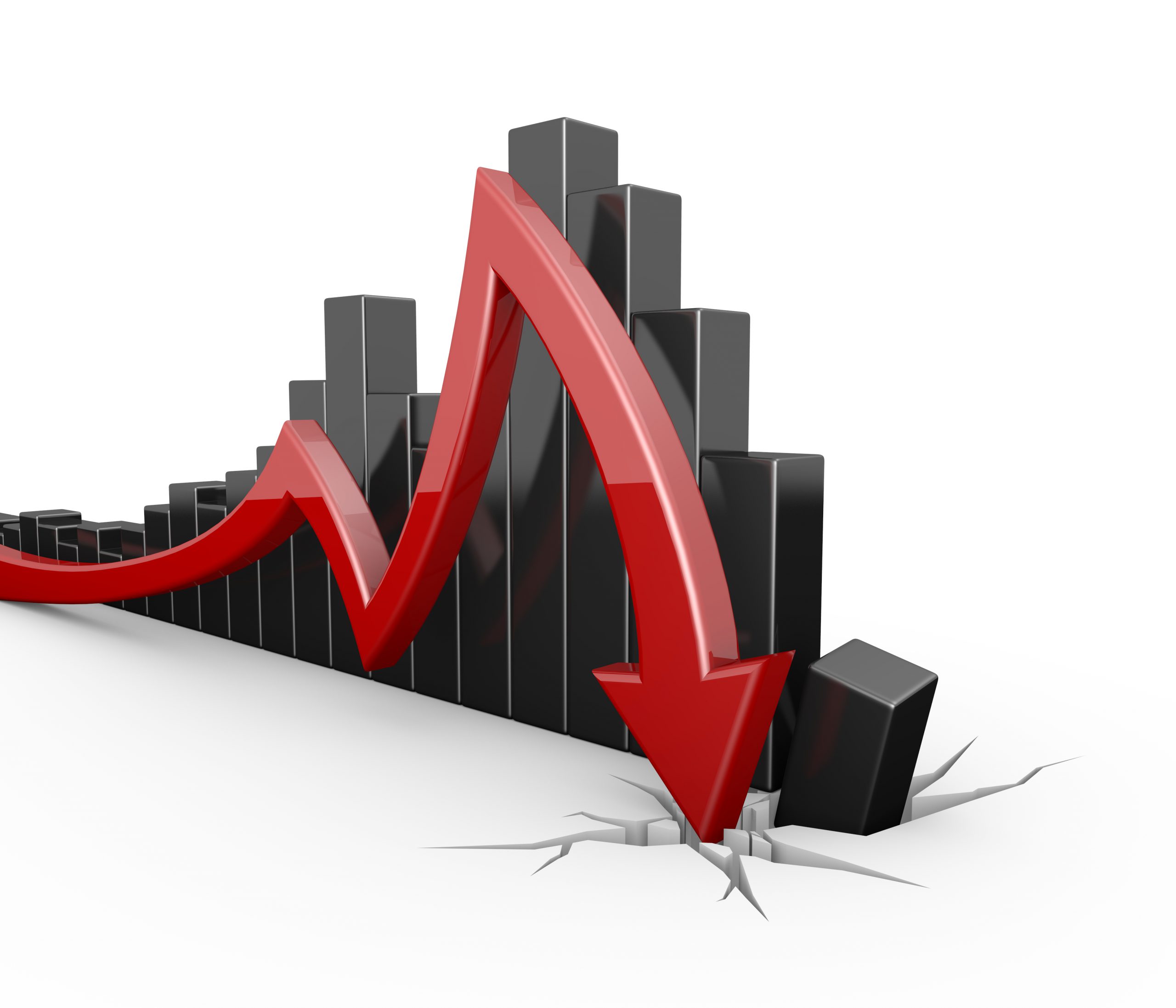
The collapse of Silicon Valley Bank, resulting in a credit crunch, along with the rise in new claims for unemployment benefits, has cast a shadow over the future of the economy and raised the likelihood of a recession. Hence, it could be wise to sell overvalued stocks KKR & Co. Inc. (KKR), Hess Corporation (HES), and Celsius Holdings, Inc. (CELH). Let's discuss this in detail.
The fallout of Silicon Valley Bank is expected to result in a significant challenge for those seeking loans. The past couple of weeks have seen an unprecedented decline in lending as banks rush to counter the rapid rate of deposit withdrawals, which have intensified since SVB's failure.
Morgan Stanley's (MS) top stock strategist Mike Wilson said, “The data suggest a credit crunch has started." He added that banks have witnessed withdrawals of around $1 trillion in deposits since the Federal Reserve's interest rate hike a year ago. The banking crisis has already caused Goldman Sachs (GS) to raise its odds of a recession from 25% to 35%.
Additionally, the Labor Department reported a moderate increase in the number of Americans filing new claims for unemployment benefits, indicating a gradual slowdown in the labor market. Initial claims for state unemployment benefits rose by 5,000 to 245,000, exceeding the forecasted 240,000 claims by economists polled by Reuters.
Christopher Rupkey, the chief economist at FWDBONDS in New York, said, "After months and months of watching, for the first time we can say we see a recession coming and it will be a miracle if we don't have a downturn in the economy."
Let’s discuss the featured stocks in detail.
KKR & Co. Inc. (KKR)
KKR is a global investment company that provides alternative asset management, capital markets, and insurance solutions. Its investment funds invest in private equity, credit, and real assets, while its strategic partners manage hedge funds. Furthermore, the company’s insurance subsidiaries offer a range of retirement, life, and reinsurance products.
On April 5, it was reported that KKR's Envision Healthcare Corp. is in negotiations with some of its creditors after missing the March 31 deadline to submit its fourth-quarter financials. This triggered a technical default under the company's loans. Such issues could harm KKR’s credit rating and increase borrowing costs, potentially leading to financial difficulties in the future.
In terms of forward non-GAAP P/E, KKR is trading at 13.99x, 60.7% higher than the industry average of 8.70x. The stock’s forward Price/Sales of 6.97x is 230.7% higher than the industry average of 2.11x. Also, its forward Price/Book multiple of 1.69 compares with the 0.97x industry average.
For the fourth quarter that ended December 31, 2022, KKR’s total revenue decreased 37.6% year-over-year to $2.53 billion. Its insurance expenses increased 1.8% year-over-year to $1.80 billion. The company’s adjusted EBITDA declined 35% from the year-ago value to $1.12 billion.
As of December 31, 2022, KKR’s total liabilities stood at $223.42 billion, compared to $206.15 billion as of December 31, 2021.
The consensus EPS estimate of $3.79 for the fiscal year ending December 2023 indicates a 2.9% decrease year-over-year. Likewise, the consensus revenue estimate of $6.55 billion for the current year reflects a 4.2% decline from the prior year’s period. Over the past year, the stock has slumped 8.6% to close the last trading session at $52.96.
KKR’s weak fundamentals are reflected in its POWR Ratings. It has an overall D rating, equating to Sell in our proprietary rating system. The POWR Ratings are calculated by considering 118 different factors, each weighted to an optimal degree.
The stock has an F grade for Value and a D for Sentiment and Quality. It is ranked #34 out of 35 stocks within the F-rated Private Equity industry.
Click here to see the other ratings of KKR for Stability, Growth, and Momentum.
Hess Corporation (HES)
HES is an exploration and production company that explores, develops, produces, purchases, transports, and sells natural gas, crude oil, and Natural Gas Liquids (NGLs). It operates through two segments, Exploration and Production; and Midstream.
In terms of forward non-GAAP P/E, the stock is trading at 24.66x, 181.4% higher than the industry average of 8.64x. Likewise, its forward EV/Sales and EV/EBITDA of 5.02x and 9.62x are 171.4% and 84.2% higher than the industry averages of 1.83x and 5.20x, respectively.
For the fourth quarter that ended December 31, 2022, HES’ total cost and expenses increased 21.2% year-over-year to $2.05 billion. Cash outflows from investing activities came in at $647 million, up 26.9% year-over-year.
As of December 31, 2022, the company’s cash and cash equivalents decreased 8.4% year-over-year to $2.49 billion. HES’ total liabilities and equity stood at $21.73 billion, compared to $20.52 billion as of December 31, 2021.
For the fiscal year ending December 2023, analysts expect HES’ revenue to decline 11.6% year-over-year to $10.23 billion. The company’s EPS for the ongoing year is expected to decrease 17.9% year-over-year to $5.84. Shares of HES have plunged 2.9% over the past five days to close the last trading session at $143.99.
HES’ bleak outlook is reflected in its overall D rating, equating to Sell in our POWR Ratings system. It has an F grade for Value. The stock is ranked #82 out of 90 stocks in the Energy - Oil & Gas industry.
Click here to access HES’ ratings for Growth, Stability, Quality, Sentiment, and Momentum.
Celsius Holdings, Inc. (CELH)
CELH is a consumer-packaged goods company that develops, processes, markets, and distributes functional drinks and liquid supplements. It offers functional energy drinks and protein bars targeted for pre and post-workout use. The company's flagship brand is CELSIUS, a functional energy drink designed to burn calories.
In terms of forward EV/Sales, CELH is trading at 7.06x, 311.9% higher than the industry average of 1.71x. The stock’s forward EV/EBITDA of 45.04x is 270% higher than the industry average of 12.17x. Also, its forward Price/Book multiple of 70.30 is considerably higher than the 2.91x industry average.
CELH’s cost of revenues increased 58.1% year-over-year to $98.96 million in the fourth quarter that ended on December 31, 2022. Its non-GAAP EBITDA loss came in at $31.66 million, compared to an income of $3.33 million in the prior year’s period.
In addition, the company’s net loss and loss per share stood at $21.22 million and $0.37, compared to a net income and earnings per share of $11.94 million and $0.15 in the previous year’s quarter.
The stock has plunged 10.4% year-to-date to close its last trading session at $90.02.
CELH’s POWR Ratings reflect this poor outlook. The stock has an overall D rating, which equates to Sell in our proprietary rating system.
CELH has an F grade for Value, Stability, and Sentiment. It is ranked #36 out of 37 stocks within the Beverages industry.
In addition to the POWR Ratings I’ve highlighted, you can see CELH’s ratings for Growth, Quality, and Momentum here.
What To Do Next?
Get your hands on this special report with 3 low priced companies with tremendous upside potential even in today’s volatile markets:
3 Stocks to DOUBLE This Year >
KKR shares were trading at $52.67 per share on Friday afternoon, down $0.29 (-0.55%). Year-to-date, KKR has gained 13.76%, versus a 8.26% rise in the benchmark S&P 500 index during the same period.
About the Author: Aanchal Sugandh

Aanchal's passion for financial markets drives her work as an investment analyst and journalist. She earned her bachelor's degree in finance and is pursuing the CFA program. She is proficient at assessing the long-term prospects of stocks with her fundamental analysis skills. Her goal is to help investors build portfolios with sustainable returns.
3 Overvalued Stocks to Sell in April StockNews.com






